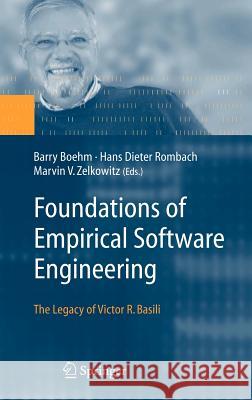Foundations of Empirical Software Engineering: The Legacy of Victor R. Basili » książka
Foundations of Empirical Software Engineering: The Legacy of Victor R. Basili
ISBN-13: 9783540245476 / Angielski / Twarda / 2005 / 432 str.
Although software engineering can trace its beginnings to a NATO conf- ence in 1968, it cannot be said to have become an empirical science until the 1970s with the advent of the work of Prof. Victor Robert Basili of the University of Maryland. In addition to the need to engineer software was the need to understand software. Much like other sciences, such as physics, chemistry, and biology, software engineering needed a discipline of obs- vation, theory formation, experimentation, and feedback. By applying the scientific method to the software engineering domain, Basili developed concepts like the Goal-Question-Metric method, the Quality-Improvement- Paradigm, and the Experience Factory to help bring a sense of order to the ad hoc developments so prevalent in the software engineering field. On the occasion of Basili s 65th birthday, we present this book c- taining reprints of 20 papers that defined much of his work. We divided the 20 papers into 6 sections, each describing a different facet of his work, and asked several individuals to write an introduction to each section. Instead of describing the scope of this book in this preface, we decided to let one of his papers, the keynote paper he gave at the International C- ference on Software Engineering in 1996 in Berlin, Germany to lead off this book. He, better than we, can best describe his views on what is - perimental software engineering."











